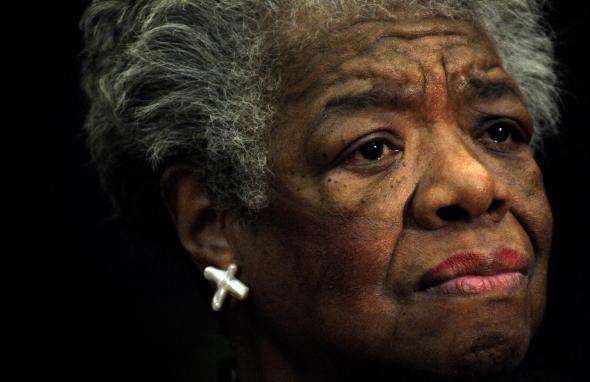What hasn’t Maya Angelou done? A poet, memoirist, historian, activist, and professor; a three-time Grammy winner for her spoken-word recordings; a nightclub dancer; a cabaret and calypso singer; a Broadway actress, a film and television director; a performer for Alvin Ailey; the second poet, after Robert Frost, to appear at an American presidential inauguration; an ardent tweeter until the very end—86 years seems too short to contain the boil and glow of her life. But Angelou lived to challenge limits.
Growing up amid sexism and violence, she turned her womanhood into a joyful phenomenon. Witness to the Jim Crow South, she plunged into the civil rights movement with a series of plays and essays on the American black experience. She captured the resilience of the downtrodden with a few immortal lines from her 1978 verse collection: “You may write me down in history/ With your bitter, twisted lies/ You may trod me in the very dirt/ But still, like dust, I’ll rise.”
The stanza below comes from “When Great Trees Fall,” the last poem in Angelou’s fifth volume of poetry, I Shall Not Be Moved. It captures her grace and gentleness, as well as that calm stretching action she urges upon us: Fill the spaces and move beyond them. Be and be better. Angelou has filled the spaces and passed through one more limit. We’re all the better for it.
And when great souls die,
after a period peace blooms,
slowly and always
irregularly. Spaces fill
with a kind of
soothing electric vibration.
Our senses, restored, never
to be the same, whisper to us.
They existed. They existed.
We can be. Be and be
better. For they existed.
